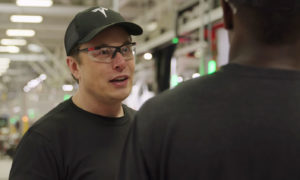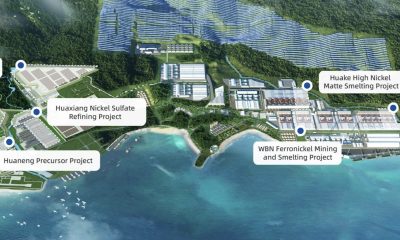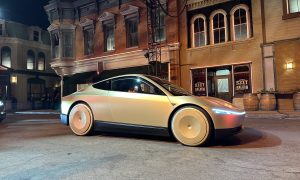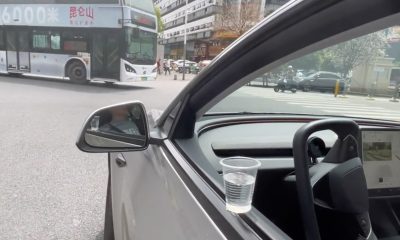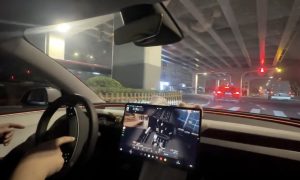News
Audi hopes to beat Tesla in Chinese electric car market
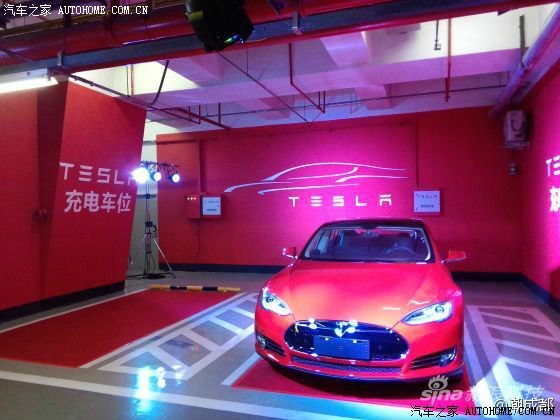
Audi is planning a major push into the Chinese electric car market in an effort to gain an advantage over Tesla. The German luxury automobile maker has announced its plans to produce five new electric vehicles for the Chinese market over the next five years, starting with the A6L e-tron sedan.
The L denotes a long wheelbase version of a car. Rear seat roominess is highly prized by Chinese customers, so manufacturers offer stretched variants of their regular models to lure Chinese customers. It will be manufactured in China in cooperation with local partner FAW automotive group.
The Q7 e-tron SUV is expected to go on sale in China next year and will be imported rather than manufactured in country. Audi says it will bring another electric car with more than 300 miles of range to the Chinese market in the near future. The Audi Quattro e-tron is scheduled to be released in Germany later this year.
More than 300,000 electric cars were sold in China last year, making it the largest market for electric vehicles in the world. EV sales are helped in large part by generous subsidies from the government, which can amount to as much as $16,000 per car. While those subsidies are set to scale back over the next few years, they still are larger than what other countries offer.
Selling electric cars in volume in China helps to spread research and development costs across more vehicles, lowering per unit costs. The same dynamic also helps lower battery manufacturing costs.
At present, Chinese law requires foreign car companies to share a significant amount of their technology with local manufacturing partners. But a new law is expected to be announced in the next few weeks that will significantly reduce that requirement. Companies will still be required to work with local partners but won’t need to share quite as much of their proprietary technology with them as before.
The change will make China an even more attractive market for Tesla, which makes some of the most technologically advanced cars in the world. Tesla plans to be a major force in the Chinese electric car market and is considering where and when to build its own factory in China. Audi and other manufacturers will need to move quickly if they want to keep Tesla from gaining an insurmountable lead in EV sales in China.
Elon Musk
Elon Musk confirms Tesla is already rolling out a new feature for in-car Grok
Tesla is already making in-car Grok more robust with a simple but effective feature that CEO Elon Musk says is “coming.”
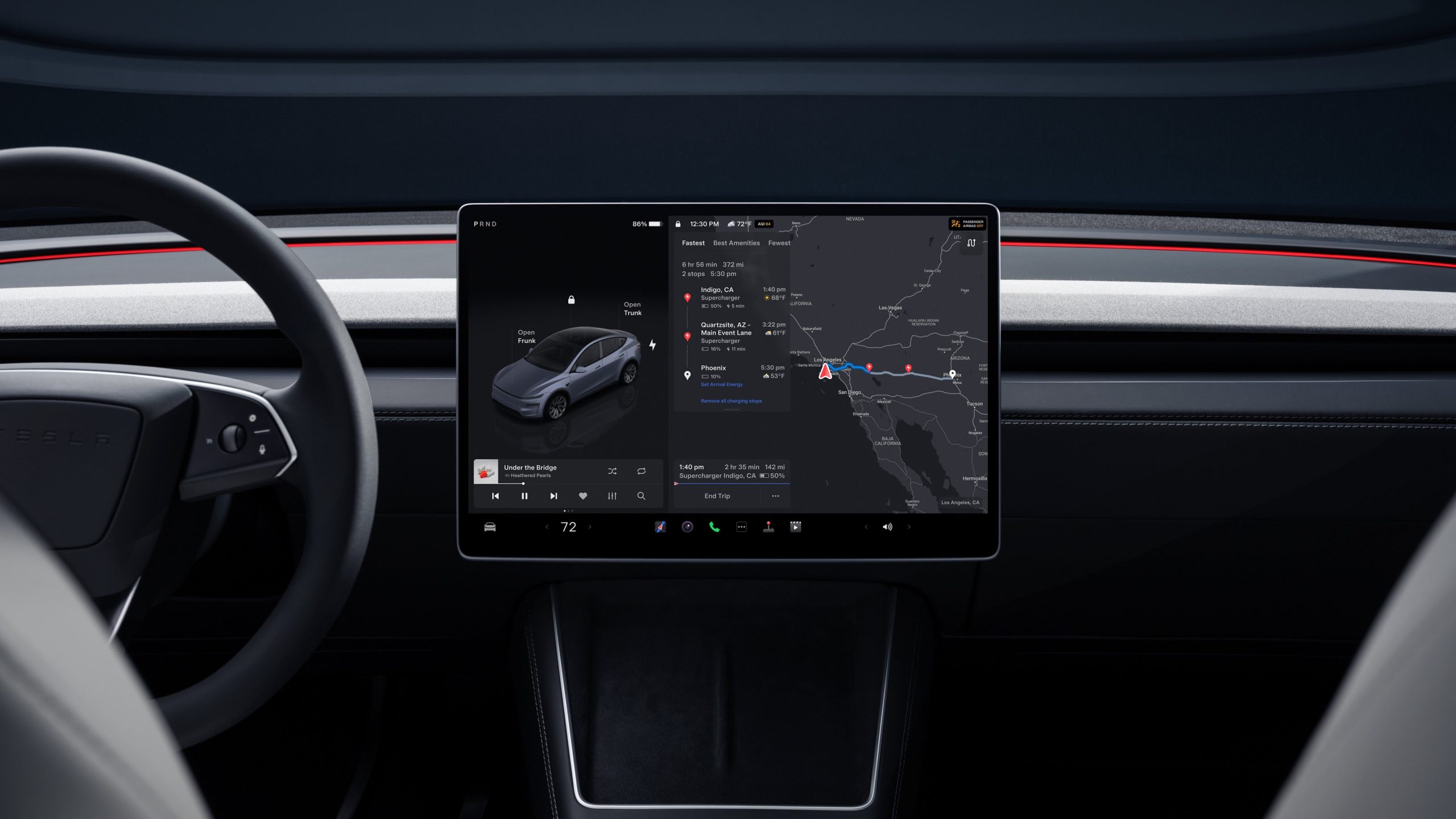
Tesla CEO Elon Musk has confirmed that the company will roll out a new feature for in-car Grok as it is rolling out to vehicles for the first time.
Grok was just recently added as a feature to Tesla vehicles within the past week, but owners are already requesting some small changes to make it more convenient to use.
Tesla debuts hands-free Grok AI with update 2025.26: What you need to know
The first is already on the way, Musk confirmed, as WholeMarsBlog requested a simple, but useful feature for Grok as it is used within Tesla vehicles.
Whole Mars requested that “Hey Grok” be used as a wake word, automatically activating the AI assistant without having to touch any buttons. Musk confirmed it is already in development and on the way to vehicles:
Coming
— Elon Musk (@elonmusk) July 16, 2025
This feature is incredibly similar to that of “Hey Siri” with iPhones and other iOS devices. The phone will recognize your voice and hear that prompt, automatically activating Siri. Apple’s assistant will then perform whatever task it is asked to perform. It’s a simple but effective performance feature.
Grok is already getting its first reviews from owners as it rolls out to owners for the first time. It is a long time coming, too. Tesla has been hinting that Grok would be enabled in the vehicles for a while now, and it just started its initial rollout last week.
After using @grok in my Tesla tonight, I’m insanely impressed.
I honestly went into it a bit skeptical on how useful it would actually be, but I asked it some real genuine questions and it nailed it every time.
Asked it if I take my Tesla to San Francisco next week, where… pic.twitter.com/R0QrK347vi
— Zack (@BLKMDL3) July 16, 2025
Hey @Tesla_Optimus … @grok wants to know if you’re free tonight pic.twitter.com/xXfSkg8M22
— Tesla (@Tesla) July 12, 2025
Grok is available in vehicles with the AMD chip and requires Premium Connectivity or a WiFi connection to use.
Elon Musk
Tesla reveals key detail of Supercharger Diner, but it’s bigger than you think
Tesla has finally released one key detail about the Supercharger Diner, and it is bigger than what it appears at face-value.
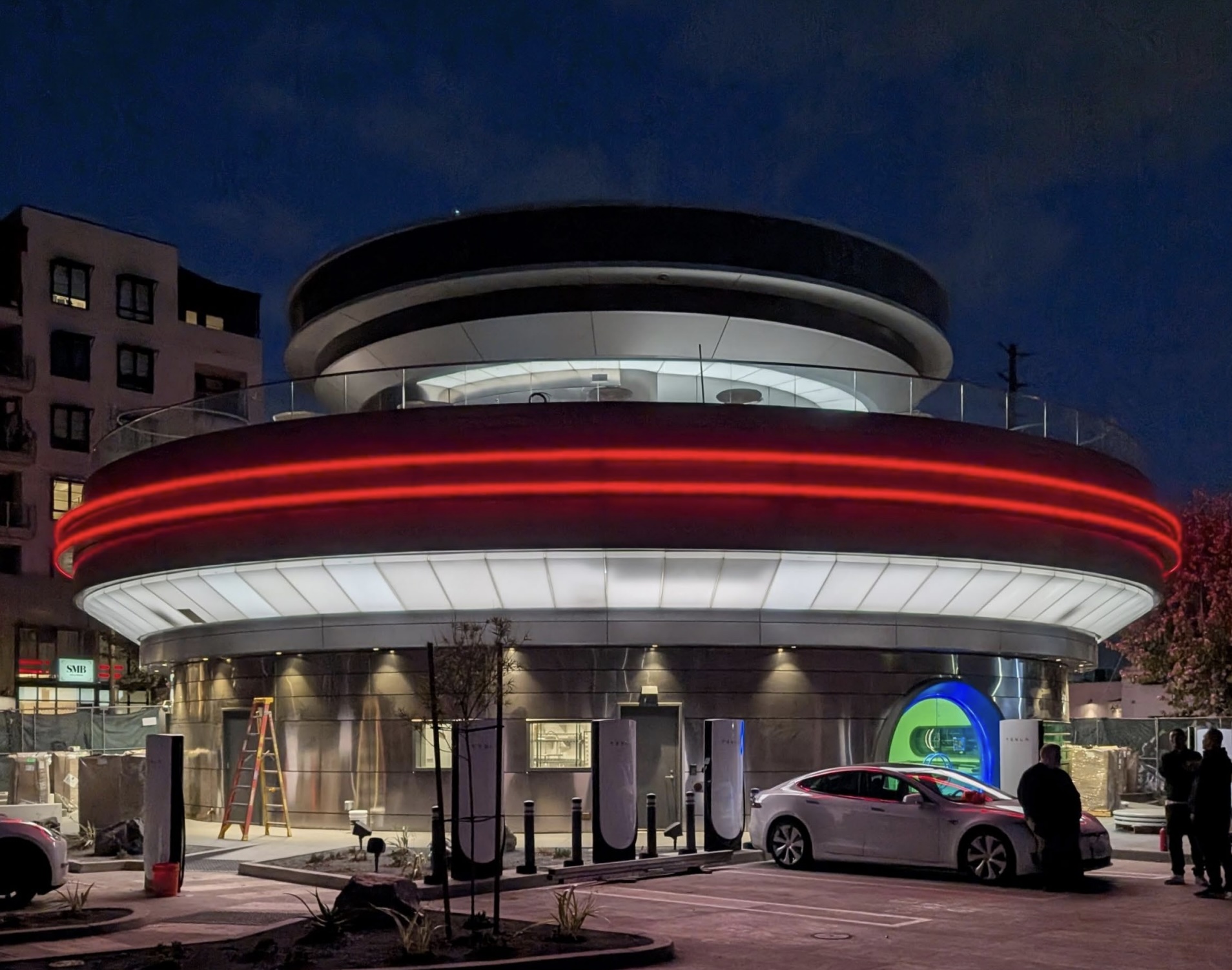
Tesla has revealed a key detail of its Supercharger Diner as its launch date appears to be nearing, based on what we are seeing at the site currently.
The Supercharger Diner is located on Santa Monica Boulevard in Los Angeles and was first proposed as an idea by CEO Elon Musk back in 2018. Musk envisioned a drive-in movie-style 1950s-inspired diner that would feature elements such as servers on roller skates, large movie screens, and a menu inspired by classic treats from several decades ago.
A project that first broke ground in 2023, the Supercharger Diner has been in development for over two years, as Tesla performed demolition work at the site back in February of that year.
It has slowly moved forward, and drone footage shot this week seems to show things are nearly up and running. Musk even mentioned that he had eaten at the Diner Supercharger this week.
There are still details that Tesla has yet to announce and confirm. The most important thing is regarding the menu that will be served at the diner.
Tesla has not hinted at what it will be making for patrons at the restaurant, but Musk commended the food and said the diner would be one of the coolest spots in LA.
🚨 Tesla has involved “almost every team at the company…in some form” in the development of the Supercharger Diner in Los Angeles https://t.co/wLC6t79vgu pic.twitter.com/o52SWWbYPd
— TESLARATI (@Teslarati) July 16, 2025
However, we now have details on another important thing about the restaurant: the hours.
Images taken by Aaron Cash of ABetterTheater.com show the diner will be open 24/7, as it appears on the front doors of the diner:
🚨 Tesla Diner in Los Angeles will be open 24/7 https://t.co/SlccUUlLIb pic.twitter.com/9I78ZGBdnz
— TESLARATI (@Teslarati) July 15, 2025
At first thought, it seems this will operate like any other diner, as many are open for 24 hours a day. Diners typically serve large menus with numerous options, catering to the tastes and moods of anyone who walks in.
People of all walks of life eat at diners, as the food is typically affordable, tasty, and available at any hour to serve those who are night owls or those who work non-typical schedules.
However, Tesla is a bit different, and it seems that this new venture into food service could eventually transition from human servers and cooks to robots, most notably the company’s in-house project of Optimus.
It is something straight out of a Star Wars movie. I can think of Obi-Wan Kenobi visiting Dex in his diner in Attack of the Clones to figure out where a poison dart was sourced from:
Eventually, Optimus will likely be working as an employee in the Tesla Diner, and 24/7 operation will be performed by the humanoid robot that aims to eliminate trivial tasks from humans.
News
First glimpse of Tesla Model Y with six seats and extended wheelbase
It’s longer and taller than the regular Model Y, and it has a cool new badge.
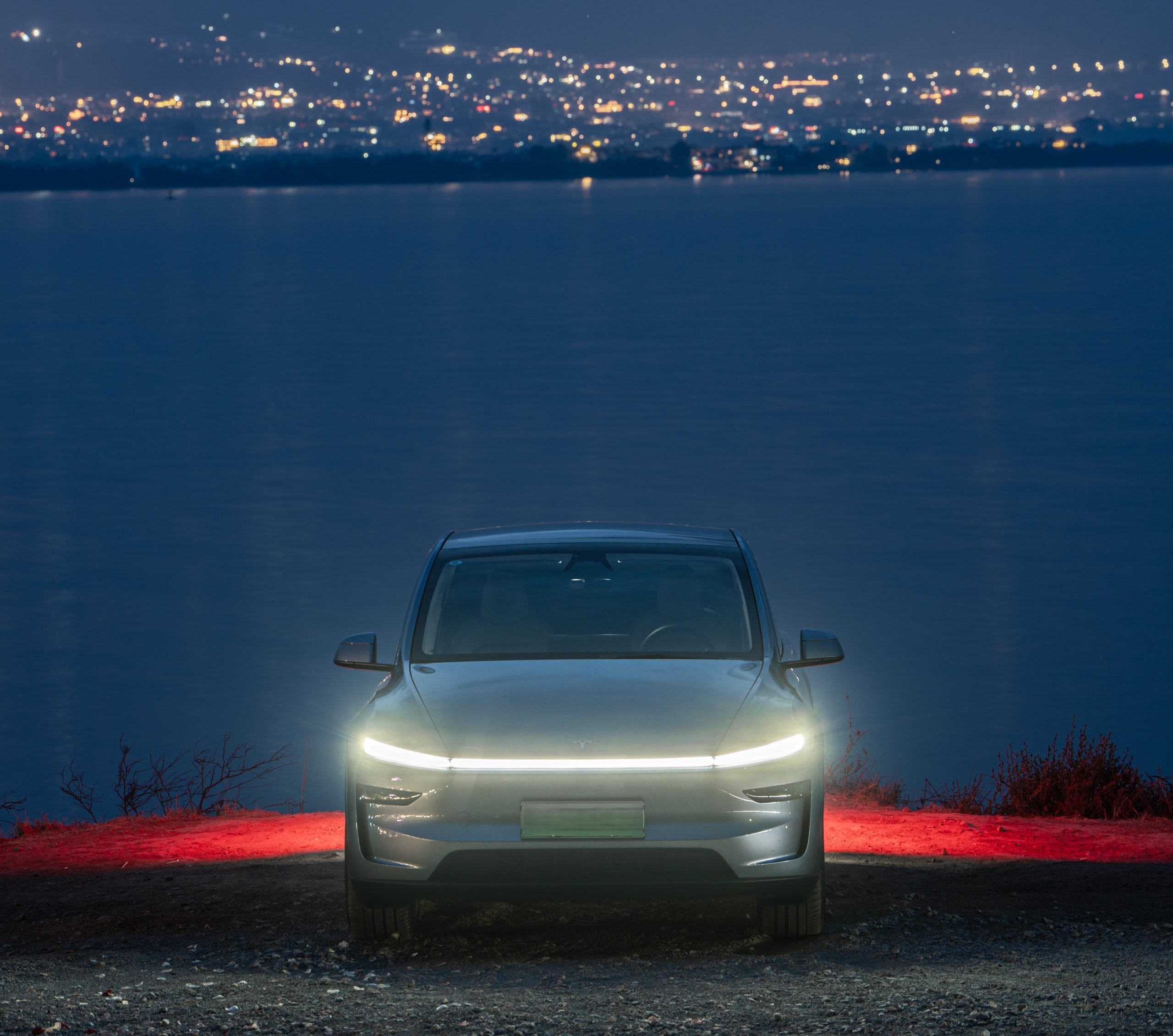
Tesla’s extended wheelbase Model Y has been announced by the electric vehicle maker on its official Weibo page in China. At the same time, details of the upcoming vehicle have been listed in the China Ministry of Industry and Information Technology’s (MIIT) new regulatory catalog.
The extended wheelbase Model Y
Tesla announced the upcoming vehicle on its official Weibo page, with the company noting that the new car will be called the “Model Y L.” Images posted by the company showed that the Model Y L will feature a “Model Y” badge with a stylized “Y” graphic. A teaser image of the vehicle taken from its side also emphasizes the extra space that was gained from its extended wheelbase.
The MIIT listing for the Model Y L indicated that the vehicle would be 4,976 mm long, 1,920 mm wide, and 1,668 mm high. Its wheelbase was listed in the MIIT’s catalog as 3,040 mm. In comparison, the new Model Y is currently 4,797 mm long, 1,920 mm wide, and 1,624 mm high, with a wheelbase of 2,890 mm.
Six seats and some power
Most notably, the extended wheelbase Model Y was listed in the MIIT regulatory catalog as a six-seat model. The vehicle is also listed with the product model number TSL6500BEVBA0, as noted in a CNEV Post report. And as hinted in Tesla China’s Weibo post, the vehicle will be released sometime in the fall.
The Model Y L is listed as a dual motor vehicle with peak power outputs of 142 kW and 198 kW for the front and rear motors. The vehicle is also listed with ternary batteries supplied by LG Energy Solution, and it reportedly weighs 2,088 kilograms (4603 pounds). In comparison, the new Model Y Dual Motor AWD weighs 4391 pounds.
Tesla China has not hinted at the price of the new Model Y L, though expectations are high that the vehicle will be priced at about RMB 400,000 ($55,764). It also remains to be seen if the Model Y L will also be produced in Tesla’s vehicle factories in the United States and Germany.
-

 News4 days ago
News4 days agoTesla debuts hands-free Grok AI with update 2025.26: What you need to know
-

 Elon Musk11 hours ago
Elon Musk11 hours agoElon Musk’s xAI just posted the nerdiest job opening of all time
-

 News2 days ago
News2 days agoTesla Robotaxi has already surpassed Waymo in this key metric
-

 News2 weeks ago
News2 weeks agoTesla China breaks 8-month slump by selling 71,599 vehicles wholesale in June
-

 Elon Musk7 days ago
Elon Musk7 days agoxAI launches Grok 4 with new $300/month SuperGrok Heavy subscription
-

 Elon Musk1 week ago
Elon Musk1 week agoElon Musk confirms Grok 4 launch on July 9 with livestream event
-
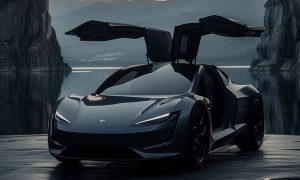
 Elon Musk3 days ago
Elon Musk3 days agoElon Musk teases Tesla’s “most epic demo” by end of year
-

 News2 days ago
News2 days agoTesla’s Robotaxi geofence in Austin grows, and its shape is hard to ignore




